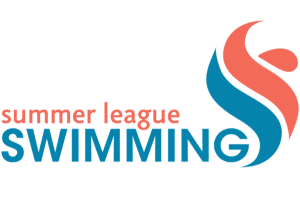Teaching young children how to swim can be challenging. For our swim instructors out there, here are some tips to help you out!
Be Prepared
It’s essential to be prepared. Creating lesson plans is important to know what you want to cover each day and how you’ll achieve your goals. But you also need to be prepared to know who you’re teaching. Administering a swim lesson to a 17-year-old is going to look a lot different than how you work and interact with a five-year-old. You’ll also deal with unique challenges with said age group. So don’t just prepare lesson plans, but prepare to communicate with your younger swimmers in a way they’ll understand.
Stay Patient
When working with younger swimmers, make sure you don’t move too fast too soon. You may have a lot of ground you want to cover, but pushing your students to progress can end up being counterproductive.
Patience is key. You want to ensure each lesson is set up so that you get incremental progress throughout the course of instruction. If you jump too quickly into concepts and lessons, your young students could get confused, and confusion can lead to unproductive resistance.
Switch Topics
Drills and kicks are necessary, but they can get repetitive. If you’re working on kicks without a break and your kids get bored, they likely won’t cooperate. Not listening, goofing around, basically, doing anything that isn’t what you asked. It can be frustrating, but you need to remember younger swimmers can have shorter attention spans.
Keep them on their toes and switch up what you do in your lessons. Go from kicking, to swimming with the noodle, to diving sticks. Changing what they’re doing in the lesson often will help your swimmers be more attentive and learn what you need them to.
Use Your Words
Words are important. Especially to your younger swimmers. Swimmers need to know terms like “fly” and “breast,” but for little ones, it can sound like an alien language.
Instead of using those words and trying to describe the motion, find a different way to explain things. For the butterfly kick, ask them to think and kick like a dolphin by “gluing” their legs together and kicking like they have a tail. Get creative and your young students will likely remember the movements easier.
Make it Fun
When it comes to challenging your swimmers, try and make it fun. Turning your challenges into games will make your students more open to the work and will get them to progress without them even realizing it.
Challenge them to swim from the wall to the ladder; if they touch the ground with their feet, they have to start over. Once they accomplish that, keep that game going, except move the goal a little further. Using dive toys can also be helpful. Throw a bunch of toys into the pool, ask them to pick their favorite color, and then go dive in to get it. Each time, you can move the toys a little deeper to help them increase their diving abilities.
Personalize Your Lessons
Everyone is different, so teaching isn’t going to be the same for each child. Before you begin any lessons, ask the parents what they’d like to get out of the lessons. Don’t forget to ask the child too! You’re going to be teaching them, so you need to hear what they have to say as well. Ask them what they’d like to learn, if they can swim in the deep end, if they like jumping and diving, etc. Figuring out what works for each child will not only help you teach better but will help your students swim better.
Encouragement is Key
Don’t forget the encouragement! For younger swimmers, the pool can be an intimidating place. The rules of gravity are suspended, there are a lot of new things to learn, and the deep end can be scary. Encouragement will help them feel comfortable and safe to branch out. Most importantly, with your encouragement, they’ll trust you to help them.

Summer League Swimming is dedicated to helping create better swim instructors.
Summer Swim League is Here to Help
With these tips, we know swim instructors will be more prepared to teach younger swimmers. If you’re looking for even more tips to not only teach swimmers but become a better swim instructor, take our swim coach certification course. It provides specific tips and techniques from leading researchers in sports and educational psychology and will equip you with the tools to grow in your craft.
Summer League Swimming is dedicated to helping create better swim instructors. No matter where you are in the United States, let us help you reach your full potential!
